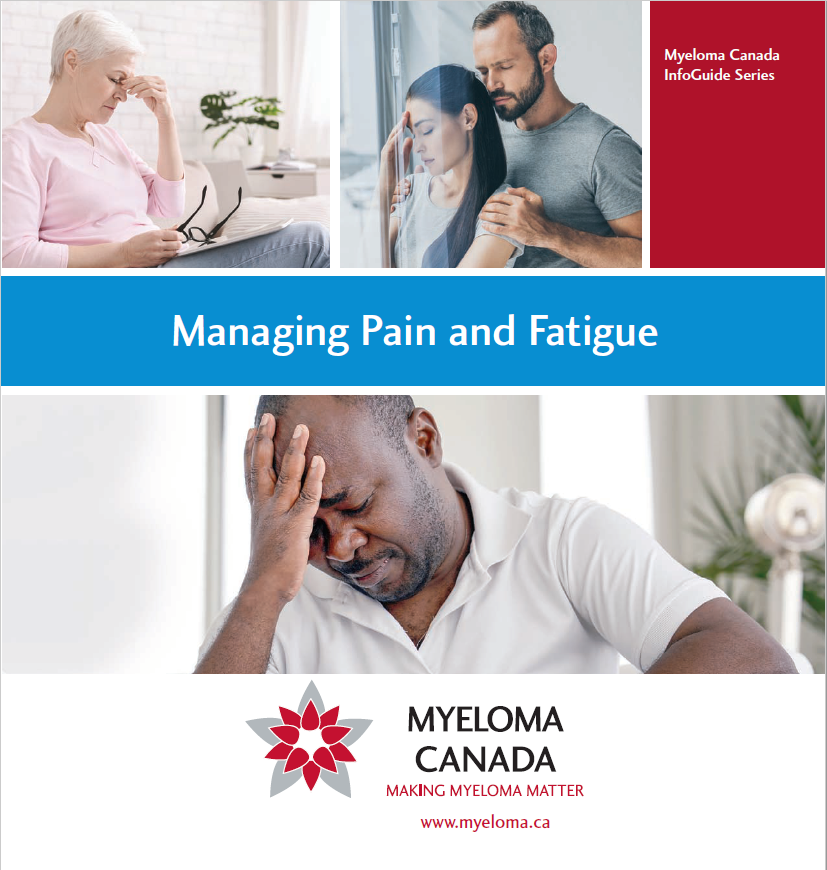Coping with pain
Bone pain is common in people with myeloma. Although the bones affected can vary from one person to another, most people with myeloma experience pain in the middle or lower back, the hips, and the rib cage.

Learn more about managing fatigue in the Managing Pain and Fatigue InfoGuide.
Coping with fatigue
Fatigue or extreme ongoing tiredness is very common in people with myeloma. It can leave you too exhausted to do the things that matter to you. It can make it hard to think straight and leave you feeling like you’ll never get better.





